Learn about all 8 B vitamins in the Vitamin B Complex—benefits, food sources, deficiency signs, and why your body needs them every day.
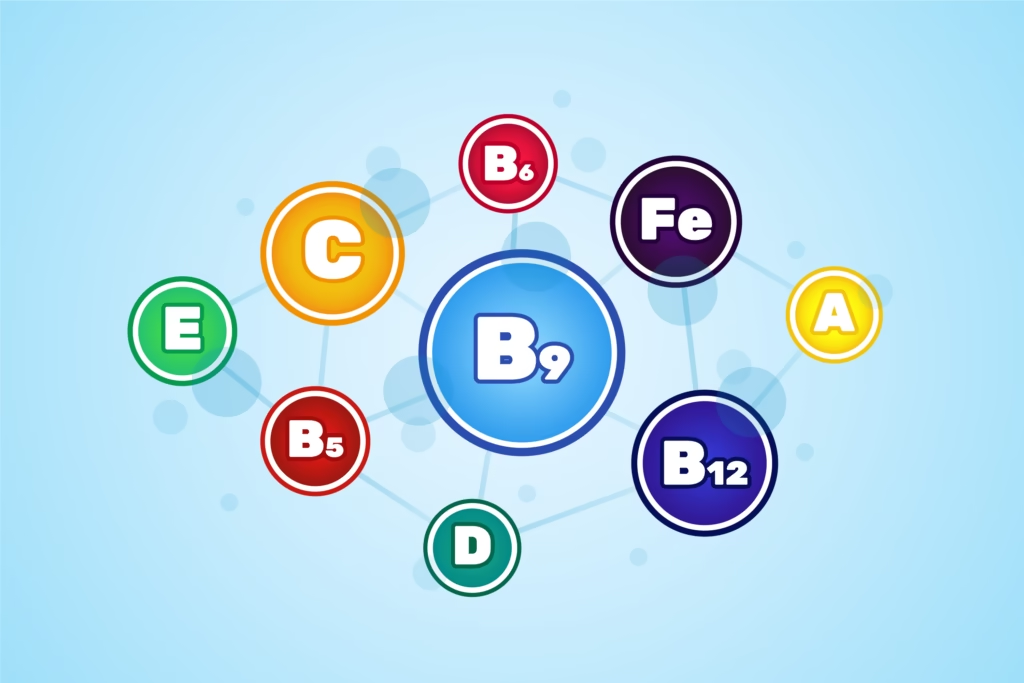
Table of Contents
Introduction: What is Vitamin B Complex?
The term Vitamin B Complex refers to a group of eight water-soluble B vitamins that work together to support various crucial functions in your body. Each one has its own unique role—ranging from helping convert food into energy, maintaining a healthy nervous system, boosting metabolism, to even supporting heart and skin health.
Because these vitamins are water-soluble, your body doesn’t store them for long. In short, your body needs a regular supply every day—either from what you eat or, if needed, from supplements.
🧬 The Eight B Vitamins and Their Unique Benefits
Let’s break down each member of the Vitamin B family:
1. Vitamin B1 – Thiamine
- What it does: It helps your body turn carbs into energy and keeps your nerves and muscles working properly.
- Best sources: Whole grains, legumes, nuts, seeds, pork, fortified cereals.
- Deficiency signs: Fatigue, irritability, nerve damage, muscle weakness.
- Vitamin B1 is essential for energy production and a healthy nervous system.
Symptoms of Vitamin B1 Deficiency
Symptoms depend on the severity and duration of deficiency and are usually grouped into two categories:
1. Dry Beriberi (Affects the nervous system):
- Tingling or burning sensations in hands and feet (paresthesia)
- Muscle weakness
- Difficulty walking (ataxia)
- Confusion or memory issues
2. Wet Beriberi (Affects the cardiovascular system):
- Shortness of breath
- Swelling of lower limbs (edema)
- Rapid heart rate (tachycardia)
- Congestive heart failure in severe cases
3. Wernicke-Korsakoff Syndrome (Brain disorder due to severe deficiency):
Mostly seen in chronic alcoholics
- Wernicke’s encephalopathy: confusion, eye movement problems (nystagmus), poor coordination
- Korsakoff’s psychosis: severe memory loss, hallucinations, confabulation
Treatment of Vitamin B1 Deficiency
- Oral thiamine supplements in mild cases
- Intravenous (IV) thiamine in severe deficiency or emergencies
- Treat underlying cause (e.g., alcohol cessation, treating malabsorption)
Improvement in symptoms can begin within days of treatment, especially neurological symptoms.

2. Vitamin B2 – Riboflavin
- Function: Acts as an antioxidant; supports skin health, eye function, and red blood cell production.
- Best sources: Eggs, dairy products, leafy greens, almonds, mushrooms.
- Deficiency signs: Cracked lips, sore throat, skin inflammation, light sensitivity.
- Vitamin B2 supports cellular energy and maintains glowing skin and good vision.

3. Vitamin B3 – Niacin
- Function: Aids metabolism, supports skin and digestive health, and promotes healthy cholesterol levels.
- Best sources: Chicken, tuna, turkey, peanuts, brown rice.
- Deficiency signs: Pellagra (diarrhea, dermatitis, dementia), fatigue, depression.
- Vitamin B3 helps lower cholesterol and keeps your skin and digestion in check.
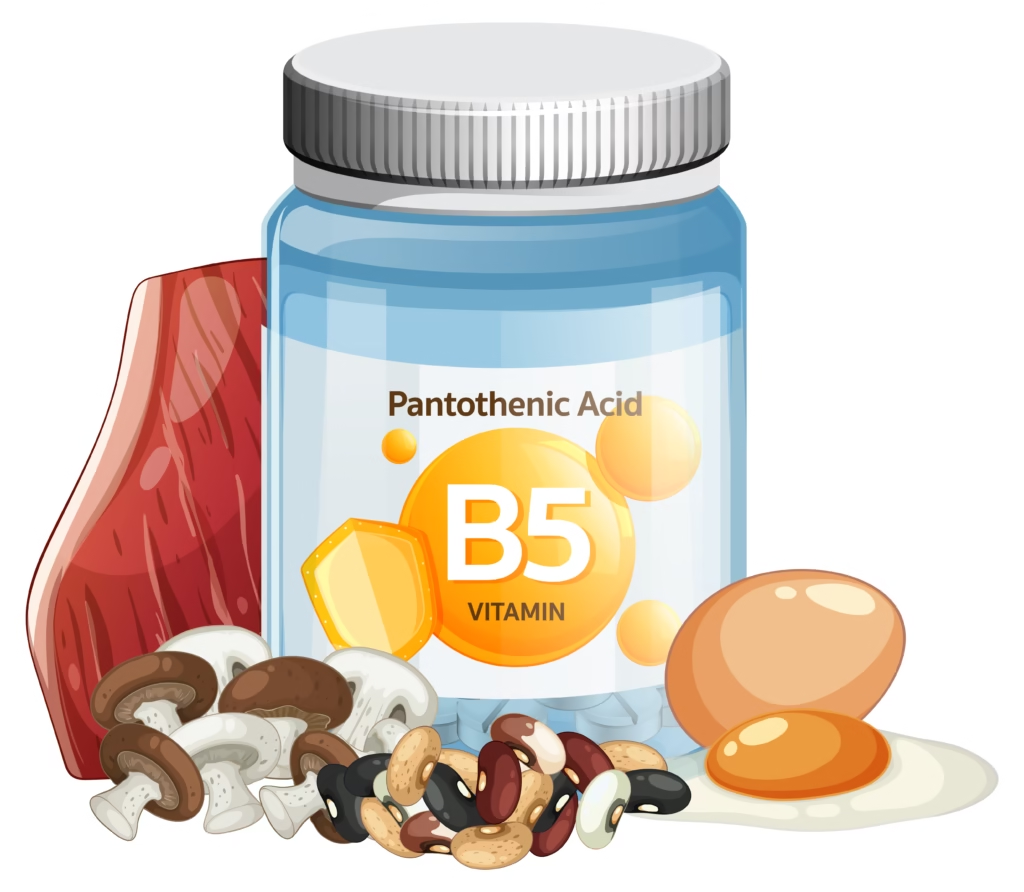
4. Vitamin B5 – Pantothenic Acid
- Function: Vital for synthesizing hormones, cholesterol, and red blood cells; helps break down fats and carbs.
- Best sources: Avocados, mushrooms, eggs, whole grains, sweet potatoes.
- Deficiency signs: Tingling in hands/feet, fatigue, headaches, irritability.
- Vitamin B5 is a stress-fighting vitamin involved in hormone production.
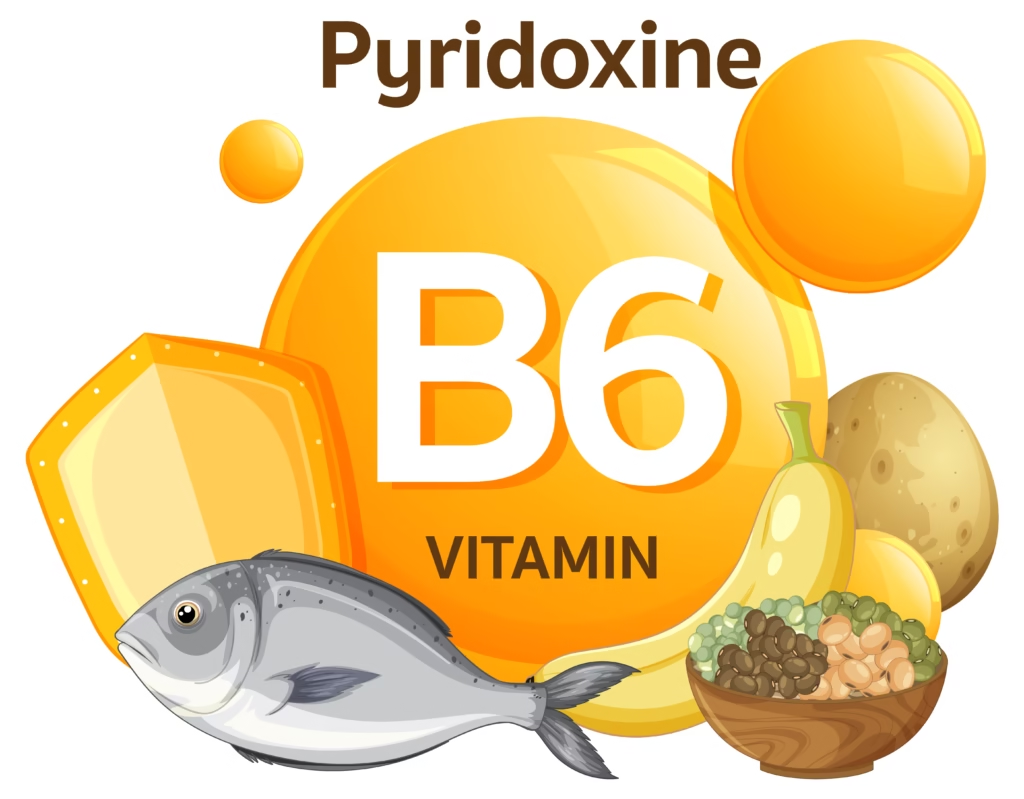
5. Vitamin B6 – Pyridoxine
- Function: Key for brain development, mood regulation (helps make serotonin), and immune function.
- Best sources: Bananas, potatoes, chickpeas, poultry, tuna.
- Deficiency signs: Depression, confusion, irritability, weakened immunity.
- Vitamin B6 boosts brain health, mood balance, and immune defense.
6. Vitamin B7 – Biotin
- Function: Supports healthy hair, skin, and nails; important in metabolism of fats, carbs, and proteins.
- Best sources: Egg yolk, nuts, seeds, salmon, sweet potatoes.
- Deficiency signs: Hair thinning, brittle nails, skin rashes.
- Biotin is often called the beauty vitamin—vital for strong hair, nails, and skin.
7. Vitamin B9 – Folate (or Folic Acid in supplement form)
- Function: Crucial for DNA synthesis, cell growth, and preventing neural tube defects during pregnancy.
- Best sources: Leafy greens, legumes, citrus fruits, fortified grains.
- Deficiency signs: Anemia, fatigue, poor concentration, birth defects.
- Folate is essential for prenatal health and red blood cell formation.
Functions of Folic Acid
- Supports DNA and RNA synthesis
- Essential for red blood cell production
- Helps in cell division and growth
- Crucial during pregnancy to prevent neural tube defects
- Supports brain and heart health
Folic Acid vs Folate: What’s the Difference?
- Folate: Natural form found in leafy greens, fruits, and legumes
- Folic Acid: Synthetic form used in supplements and fortified foods
Folic acid is more stable and better absorbed in the body, especially in fortified foods.
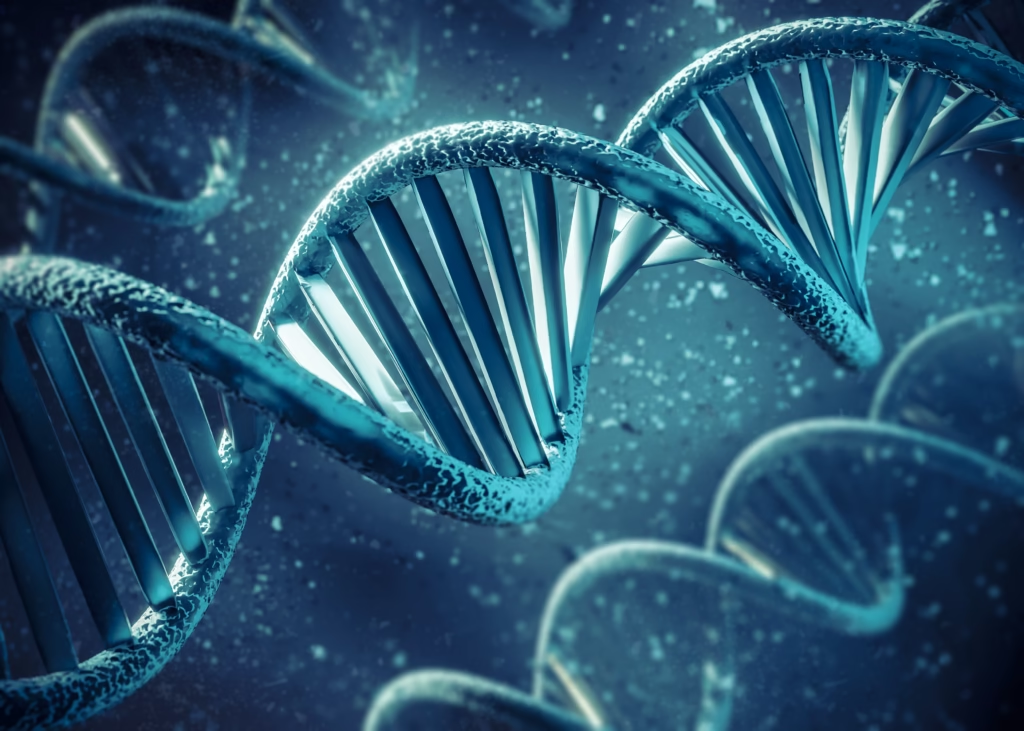
Folic Acid Benefits
- Prevents neural tube defects (like spina bifida) in babies
- Reduces risk of anemia
- Supports healthy brain development
- May lower risk of stroke and heart disease
- Plays a role in managing homocysteine levels (an amino acid linked to heart disease)
Folic Acid Deficiency: Signs and Symptoms
A deficiency in folate or folic acid can lead to:
- Fatigue and weakness
- Pale skin
- Irritability or mood changes
- Poor appetite
- Glossitis (swollen, red tongue)
- Megaloblastic anemia
- Neural tube defects in babies (if mother is deficient during early pregnancy)
People at higher risk of deficiency include:
- Pregnant women
- People with alcohol use disorder
- Individuals with malabsorption conditions (e.g., celiac disease)
- Those on certain medications (methotrexate, anticonvulsants)
Recommended Daily Intake
| Group | RDA (mcg/day) |
|---|---|
| Adult men and women | 400 mcg |
| Pregnant women | 600 mcg |
| Breastfeeding women | 500 mcg |
Best Food Sources of Folate
- Dark leafy greens (spinach, kale, romaine)
- Citrus fruits (oranges, lemons)
- Legumes (lentils, chickpeas, beans)
- Beets
- Broccoli
- Avocados
- Fortified cereals and bread
- Nuts and seeds
Tip: Folate is sensitive to heat and can be lost during cooking. Steaming or raw consumption retains more folate.

Folic Acid in Pregnancy
Folic acid is critical during the first 4–6 weeks of pregnancy—often before a woman knows she is pregnant. That’s why many health guidelines recommend:
- 400 mcg/day of folic acid for all women of reproductive age
- 600 mcg/day during pregnancy
- Start supplementation at least 1 month before conception, if planning
Supplementation greatly reduces the risk of:
- Neural tube defects (spina bifida, anencephaly)
- Low birth weight
- Preterm birth
Who Needs Folic Acid Supplements?
- Women planning pregnancy or in early pregnancy
- People with folate-deficiency anemia
- Those with malabsorption disorders
- Individuals on medications that interfere with folate metabolism
Folic Acid and Homocysteine
Folic acid, along with Vitamin B6 and Vitamin B12, helps reduce levels of homocysteine, an amino acid linked to cardiovascular disease when elevated.
Side Effects and Precautions
Folic acid is generally safe. However, very high doses may:
- Mask symptoms of Vitamin B12 deficiency
- Interact with certain medications (consult your doctor if on anticonvulsants or chemotherapy)
Safe upper intake level for adults: 1,000 mcg/day (from supplements and fortified foods)
Conclusion
Folic acid is a powerhouse nutrient that plays a key role in blood health, brain function, and fetal development. Make sure your diet includes folate-rich foods and consider supplements if you fall into a high-risk group—especially if you’re planning a pregnancy. Early prevention is simple, safe, and life-saving.
8. Vitamin B12 – Cobalamin
- Function: Needed for red blood cell production, nerve function, and DNA synthesis.
- Best sources: Animal products like meat, fish, dairy, eggs; fortified plant milks.
- Deficiency signs: Fatigue, tingling or numbness, memory issues, megaloblastic anemia.
- Note: Vegans often need B12 supplements.
- Vitamin B12 is a must for energy, memory, and nerve health—especially for vegetarians and vegans.
Functions of Vitamin B12
- Helps form red blood cells
- Maintains healthy nerves and brain
- Supports DNA synthesis and repair
- Plays a role in energy metabolism
- Reduces levels of homocysteine, a heart disease risk factor
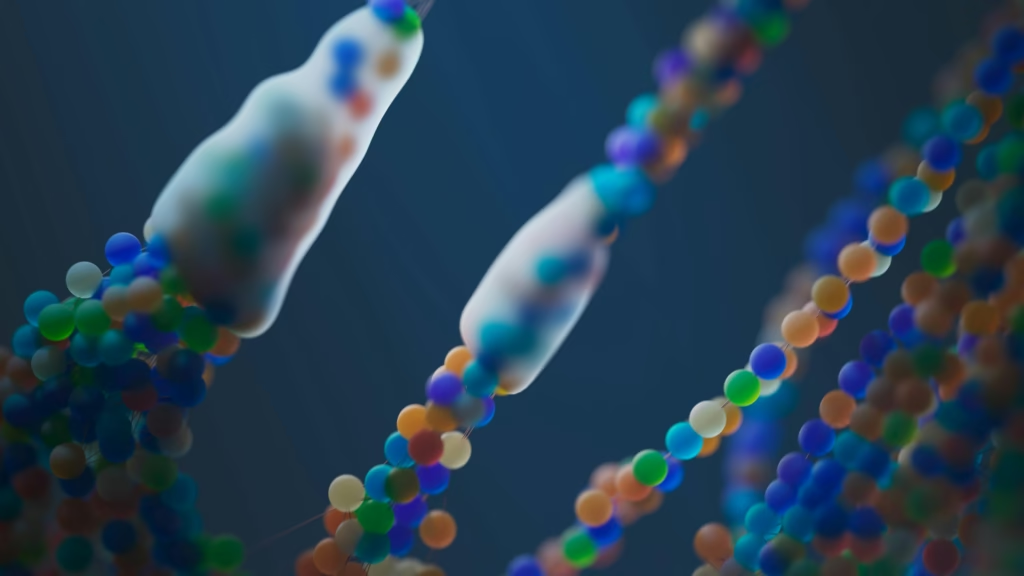
Vitamin B12 Deficiency: Who’s at Risk?
Despite liver storage, B12 deficiency is common due to poor absorption or dietary restrictions. Risk groups include:
- Vegetarians and vegans (B12 is found mostly in animal products)
- Elderly people
- People with gastrointestinal disorders (e.g., celiac disease, Crohn’s)
- Post-bariatric surgery patients
- People on long-term antacids or metformin
- Those with pernicious anemia
Symptoms of Vitamin B12 Deficiency
Symptoms may develop slowly and be subtle. Common signs include:
- Fatigue and weakness
- Pale or yellow skin
- Numbness or tingling in hands and feet (neuropathy)
- Memory loss or confusion
- Mood changes or depression
- Glossitis (smooth, swollen tongue)
- Poor balance or coordination
- Shortness of breath or dizziness
If left untreated, B12 deficiency can lead to permanent nerve damage.
Diagnosis of B12 Deficiency
- Blood tests for Vitamin B12 levels
- Elevated homocysteine and methylmalonic acid (MMA)
- Complete blood count (CBC) showing macrocytic anemia
- Neurological examination
Treatment of B12 Deficiency
Treatment depends on severity and cause:
- Oral B12 supplements (methylcobalamin or cyanocobalamin)
- Vitamin B12 injections (intramuscular) for severe deficiency or absorption issues
- Lifelong treatment may be needed in pernicious anemia or post-surgery patients
Most people feel better within a few weeks of treatment.
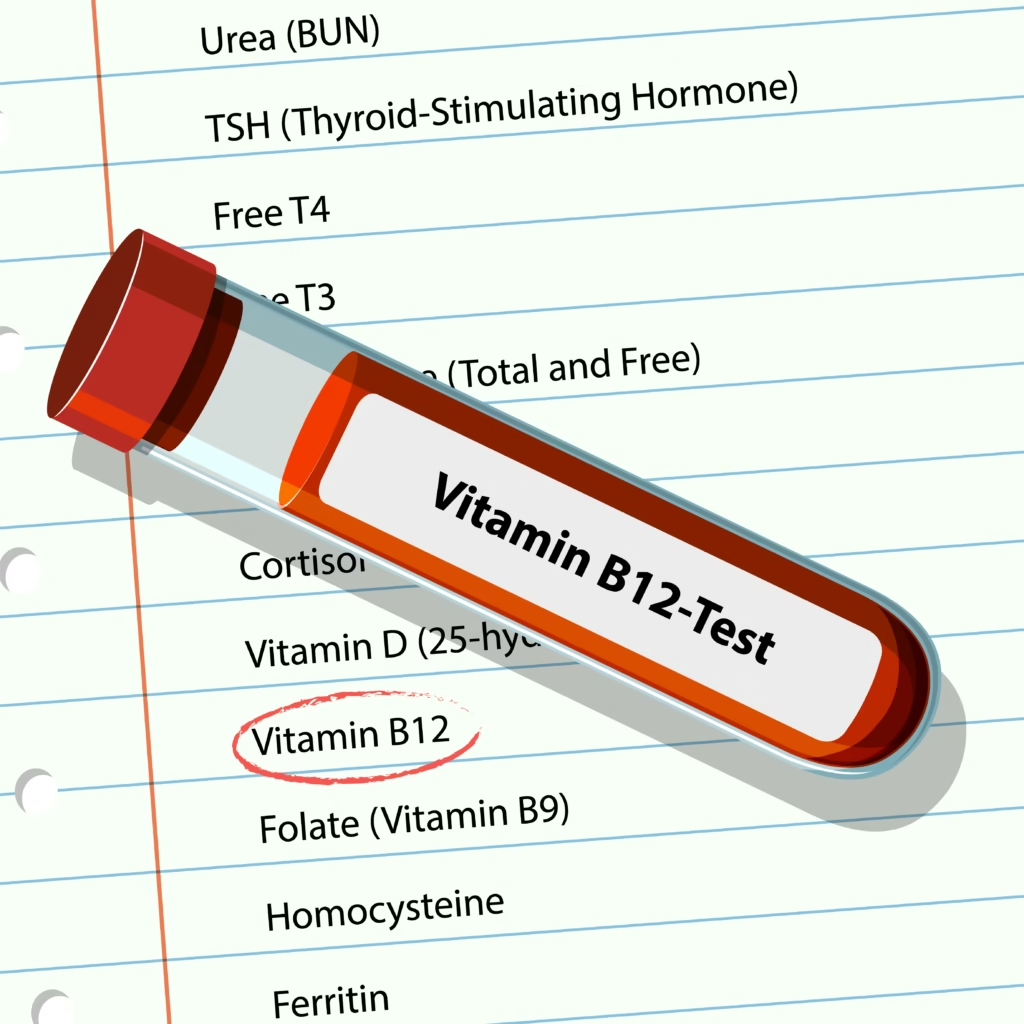
Best Food Sources of Vitamin B12
Vitamin B12 is naturally found in animal-based foods:
- Meat (especially liver and red meat)
- Fish (salmon, sardines, tuna)
- Eggs
- Dairy (milk, cheese, yogurt)
- Poultry
- Fortified cereals and plant-based milks (for vegetarians and vegans)
Tip: Vegetarians and vegans should consider fortified foods or supplements.
Recommended Daily Intake
| Group | RDA (mcg/day) |
|---|---|
| Adults | 2.4 mcg |
| Pregnant women | 2.6 mcg |
| Breastfeeding women | 2.8 mcg |
Vitamin B12 Supplements: Oral vs. Injection
- Oral B12 is effective in most people, even those with mild absorption issues.
- Injections are preferred in:
- Severe deficiency
- Neurological symptoms
- Pernicious anemia
- Post-gastrointestinal surgery patients
Vitamin B12 and Energy
B12 is often marketed as an “energy booster,” but its effect is mainly seen in deficient individuals. Supplementing in normal levels doesn’t give an energy surge but is still essential for energy metabolism.
💡 Signs You Might Be Deficient in B Vitamins
Because these vitamins are water-soluble, deficiencies can develop if intake is poor. Watch out for:
- Constant fatigue or low energy
- Brain fog, depression, or irritability
- Weak immunity
- Poor skin or hair health
- Tingling hands or feet
🥗 Food Sources of Vitamin B Complex
A balanced diet is your best source of B vitamins. Include:
- Whole grains
- Leafy greens
- Eggs and dairy
- Lean meats and fish
- Nuts and seeds
- Legumes and lentils
- Fortified cereals

💊 Do You Need a B Complex Supplement?
You may need a supplement if you:
- Are vegan or vegetarian (B12 risk)
- Have chronic digestive issues (like IBS, celiac, or Crohn’s)
- Take certain medications (metformin, birth control, antacids)
- Are pregnant or breastfeeding
- Are older than 50
Talk to your doctor before starting any supplements, especially if you’re on medications.
🧠 Final Thoughts: Keep Your B Game Strong
From energy metabolism to brain health and glowing skin, Vitamin B Complex is a powerhouse your body relies on daily. Most people can get what they need from a well-balanced diet—but if you’re feeling tired, foggy, or moody, your B levels might be worth checking.
